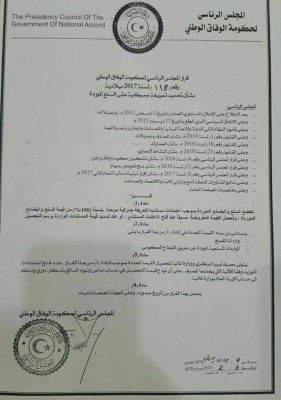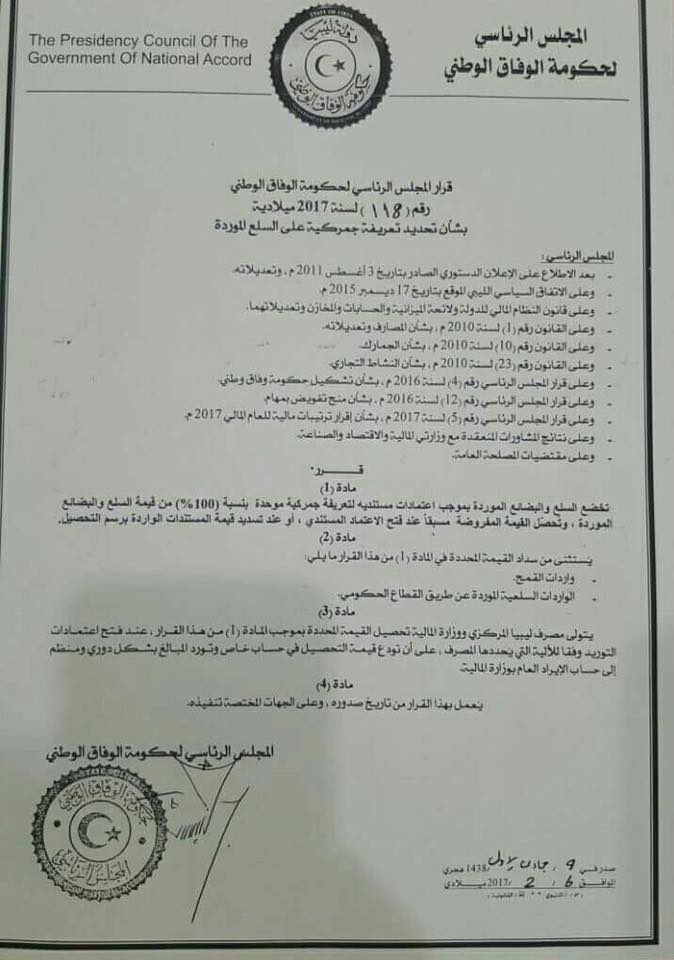By Sami Zaptia.

London, 7 February 2017:
The Faiez Serraj-led Presidency Council/Government of National Accord (PC/GNA) has announced a decree imposing one new unified customs duty of one 100 percent on almost all imports through Letters of Credit (LCs).
The exception to this new customs tariff will be wheat and essential commodities/foodstuffs imported by the state. The new customs duty will be paid in advance either at the opening of LCs or payment of Cash-Against Documents.
The decree empowers the Central Bank of Libya (CBL) and its Ministry of Finance to organize the collection procedure of the new tariff and specifies that the revenues are deposited in the public account of the Ministry of Finance.
The decision, which was dated yesterday, has not been officially released by the PC/GNA, but has been leaked onto social media. A sources at the Ministry of Finance has now confirmed the validity of the decree to Libya Herald.
The decision does not come as a surprise as it has been under discussion by the relevant state entities for a number of weeks now as they struggled to reach a decision on policies that could solve Libya’s acute economic problems.
Indeed, it was expected that the tariff would be 120 as opposed to just the 100 percent announced.
The 100 percent import duty is hoped to solve the country’s cash crises by providing liquidity by forcing importers to deposit some of the LD 18 bn thought to be outside the banking system – hoarded at home.
It is hoped that it will also help clear or reduce the annual state budget deficit of around LD 16 bn which is funded from Libya’s fast depleting hard currency reserves. The budget deficit is caused by the shortfall of state revenues as a result of the fall in Libya’s oil production and international crude oil prices.
By reducing the demand for hard currency on the black market, the Libyan authorities also hope that the price of the dollar will decrease from around LD6 to the dollar to nearer its official exchange rate of LD 1.4/dollar. It will also reduce corruption surrounding the distribution of hard currency.
However, the announcement does avoid two very contentious issue: subsidy reform and devaluing the Libyan dinar. Both the PC/GNA and Audit Bureau are thought to support devaluation but this has been staunchly, and so far, successfully, resisted by the CBL.
On the other hand, it is thought that the PC/GNA consider subsidy reform in the way of exchanging subsidized goods for a money deposit into bank accounts too incendiary to attempt in view of the current instability and weakness of state institutions.
The CBL, meanwhile, has insisted that a solution is reached first between the polarized Libyan political parties prior to any deep and wholesale economic reform.









